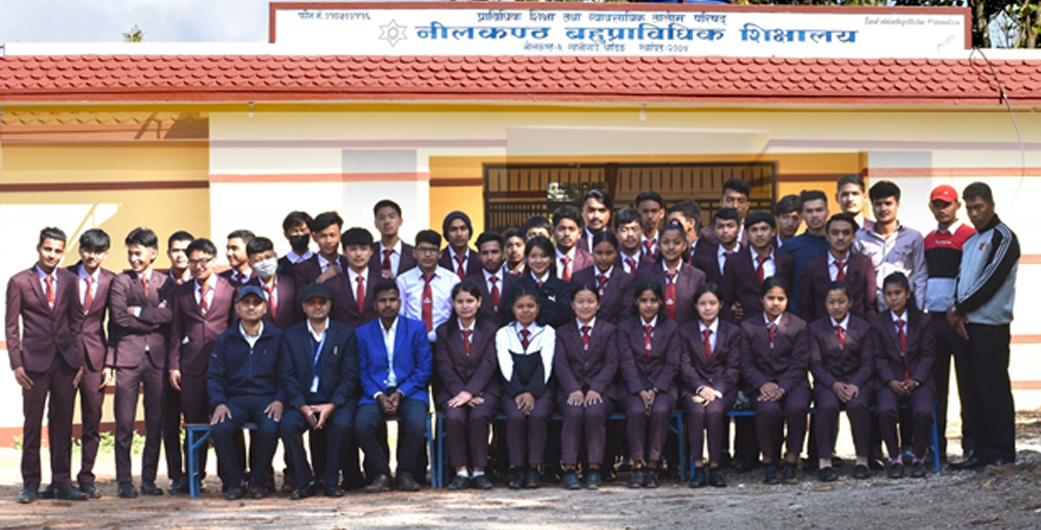Overview
Established in 2079 BS (2022 AD), Nilkantha Polytechnic Institute is a community-based technical school in Nilakantha-4, Khanigaun, Dhading. Affiliated with the Council for Technical Education and Vocational Training (CTEVT), the institute was founded to offer skill-based education that responds to Nepal’s growing need for trained professionals in engineering, especially in the hydropower sector.

Purpose and Direction
The core aim of Nilkantha Polytechnic Institute is to prepare students for real-world technical roles, focusing on areas where skilled manpower is in high demand. The institute encourages hands-on learning that helps students develop technical know-how and workplace readiness. It also supports local development by offering educational opportunities that are accessible, practical, and grounded in community needs.
Values and Academic Approach
The institute promotes an environment where students are encouraged to think independently, practice discipline, and apply what they learn in real settings. Rather than solely relying on theory, teaching here is based on practical work, teamwork, and regular engagement with tools and techniques used in the field. Instructors follow CTEVT-approved guidelines and use a step-by-step approach that helps students build skills over time.
Teaching and Learning Methods
Learning at the institute goes beyond the classroom. Students take part in:
-
Practical lab sessions
-
Surveying and drawing exercises
-
Construction site observations
-
Basic project work and field visits
The focus is on ensuring that students understand and can apply their learning. Teachers support students at every stage, and lessons are conducted in Nepali and English to improve understanding and communication.
Course Offered: Diploma in Civil Engineering (Hydropower)
Nilkantha Polytechnic Institute runs a 3-year Diploma in Civil Engineering (Hydropower) program under CTEVT. This course combines general civil engineering education with a focus on hydropower infrastructure, making it especially relevant to Nepal’s geography and national priorities.
Key Details:
-
Program Duration: 3 years
-
Total Intake Capacity: 48 students
-
Scholarship Seats: 4 (allocated based on CTEVT criteria)
-
Eligibility: The Minimum requirement is SEE or equivalent
-
Admission Process: Entrance exam conducted by CTEVT
-
Curriculum: Structured as per CTEVT’s approved syllabus
-
Fee Structure: As per CTEVT’s official guidelines
The course covers core civil engineering subjects such as construction materials, surveying, structural analysis, water resource management, and hydropower-specific components. Graduates are prepared for entry-level roles in construction projects or may choose to pursue further education.
Admissions and Scholarships
Students who wish to enroll must take the CTEVT entrance examination. The council selects students based on exam performance and scholarship criteria. Four seats are reserved for scholarship students who meet eligibility requirements. The institute provides clear information during the admission period to support applicants.
Learning Support and Facilities
Although still in its early years, the institute is equipped with basic facilities to support student learning:
-
Classrooms with instructional materials
-
Labs for drawing, surveying, and testing
-
Project-based learning modules
-
Library with textbooks and references
-
Teacher guidance and administrative help
Each student receives individual attention throughout the course, and the institute prioritizes practical knowledge that can be used after graduation.
Conclusion
Nilkantha Polytechnic Institute allows students to gain relevant technical skills in a growing field. Through its diploma program in Civil Engineering (Hydropower), it supports the development of a skilled workforce in Dhading and surrounding areas. The institute's focus on learning by doing and clear academic structure helps students take their first steps into a technical career.











